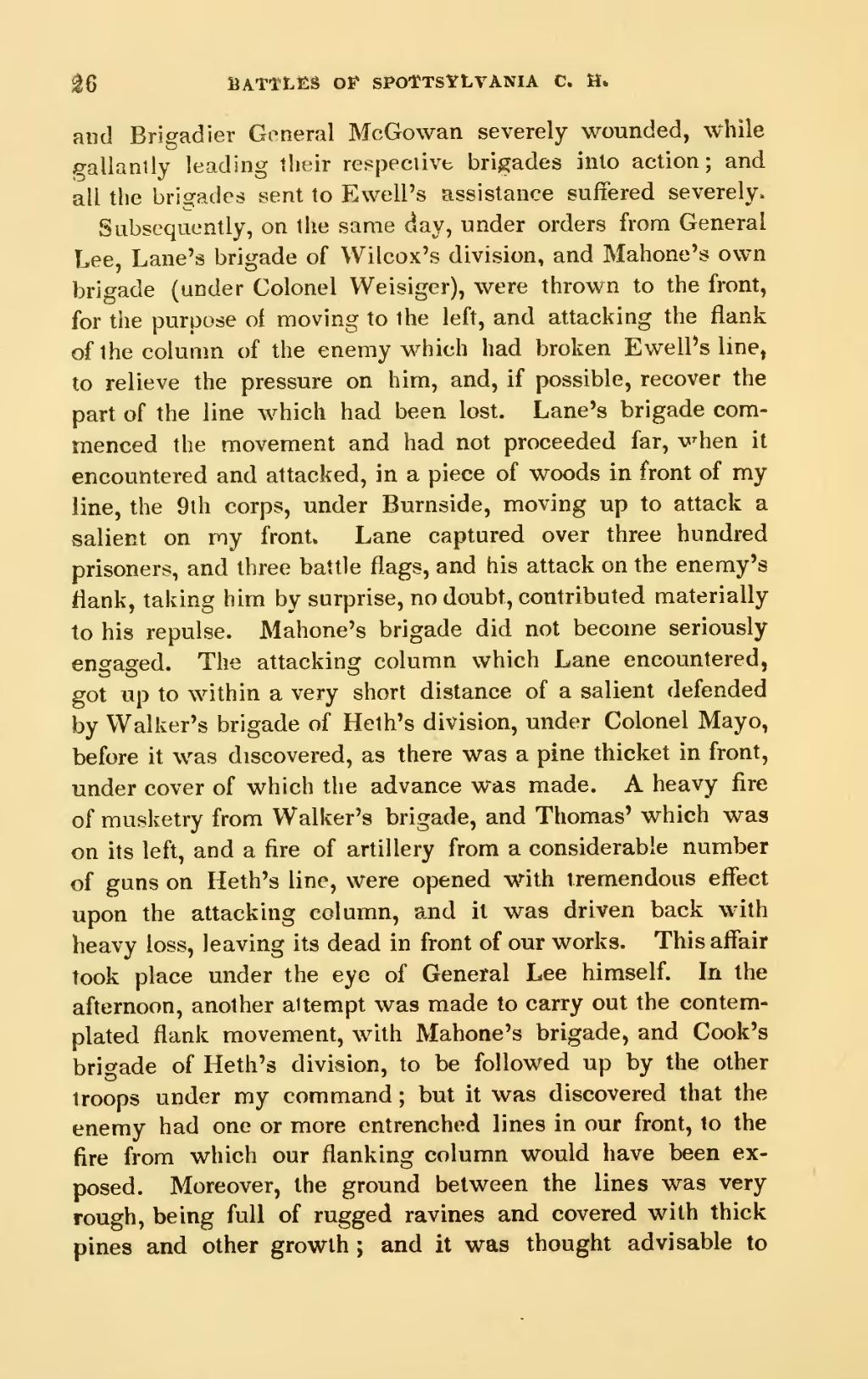and Brigadier General McGowan severely wounded, while vallantly leading their respective brigades into action; and all the brigades sent to Ewell’s assistance suffered severely. Subsequently, on the same day, under orders from General
Lee, Lane's brigade of Wilcox's division, and Mahone's own brigade (under Colonel Weisiger), were thrown to the front, for the purpose of moving to the left, and attacking the flank of the colunm of the enemy which had broken EwelPs line,
to relieve the pressure on him, and, if possible, recover the part of the line which had been lost. Lane's brigade commenced the movement and had not proceeded far, when it encountered and attacked, in a piece of woods in front of my line, the 9th corps, under Burnside, moving up to attack a salient on my front. Lane captured over three hundred prisoners, and three battle flags, and his attack on the enemy's flank, taking him by surprise, no doubt, contributed materially to his repulse. Mahone's brigade did not become seriously engaged. The attacking column which Lane encountered, got up to within a very short distance of a salient defended
by Walker's brigade of Heth's division, under Colonel Mayo, before it was discovered, as there was a pine thicket in front, under cover of which the advance was made. A heavy fire of musketry from Walker's brigade, and Thomas' which was on its left, and a fire of artillery from a considerable number of guns on Heth's line, were opened with tremendous effect upon the attacking column, and it was driven back with heavy loss, leaving its dead in front of our works. This affair took place under the eye of General Lee himself. In the afternoon, another attempt was made to carry out the contemplated flank movement, with Mahone's brigade, and Cook's brigade of Heth's division, to be followed up by the other troops under my command ; but it was discovered that the enemy had one or more entrenched lines in our front, to the fire from which our flanking column would have been exposed. Moreover, the ground between the lines was very rough, being full of rugged ravines and covered with thick pines and other growth ; and it was thought advisable to
Page:A memoir of the last year of the War of Independence, in the Confederate States of America.djvu/30
26
BATTLES OF SPOTTSYLVANIA C. H.
